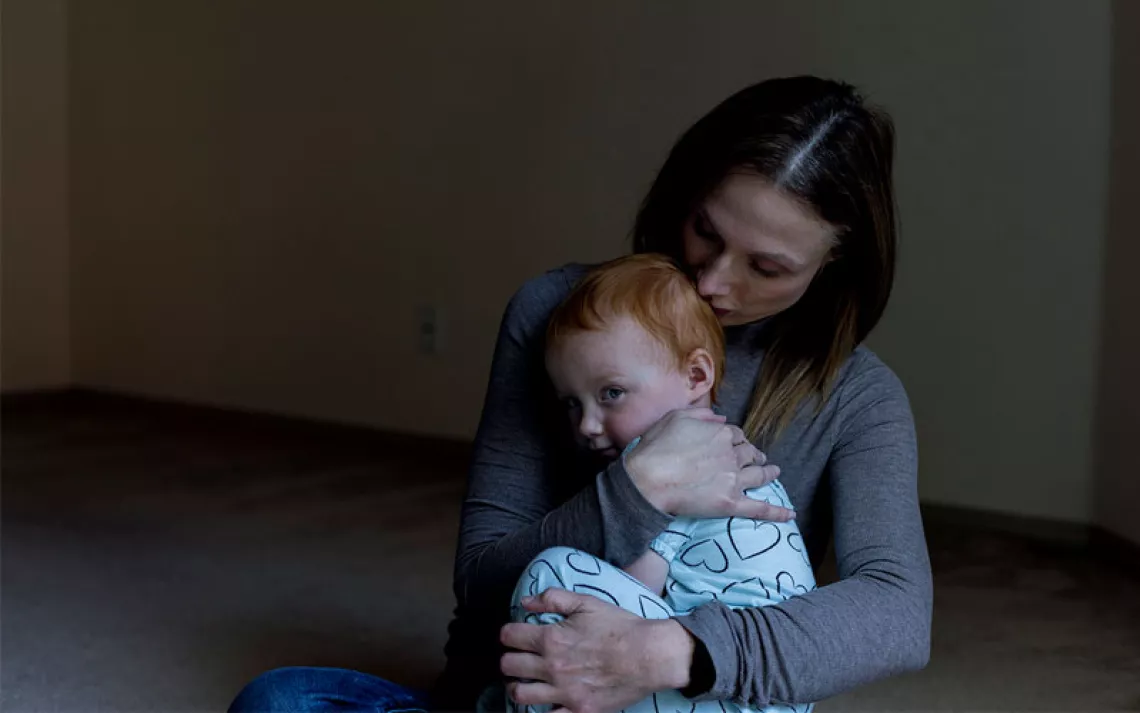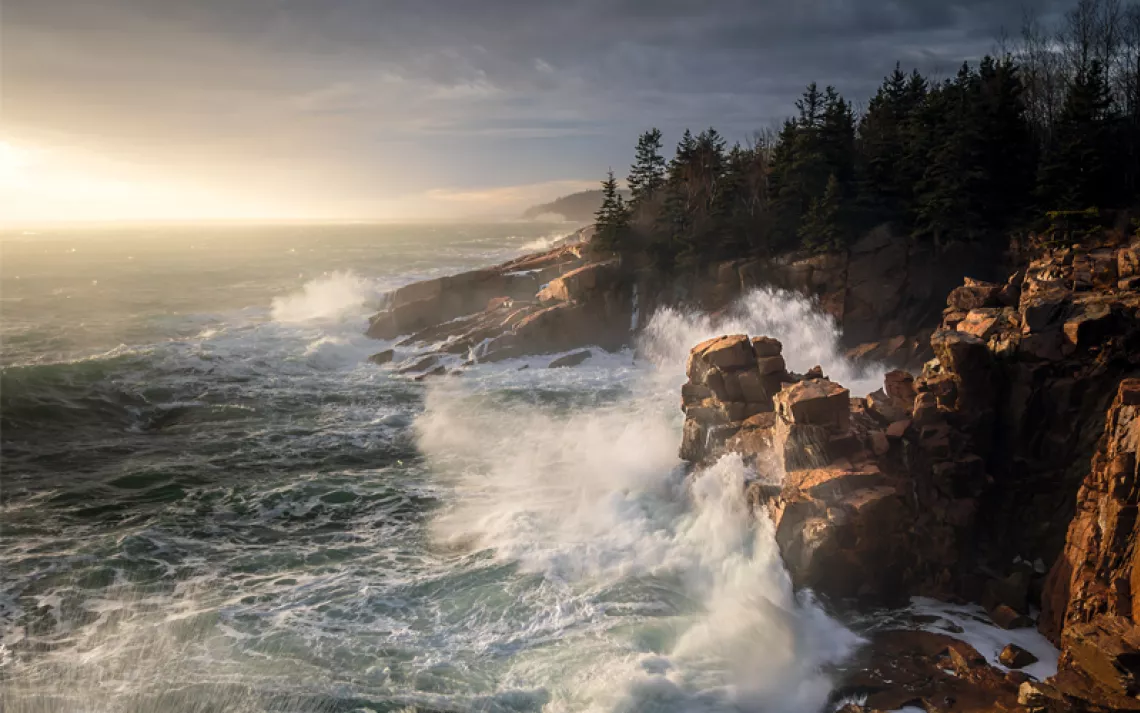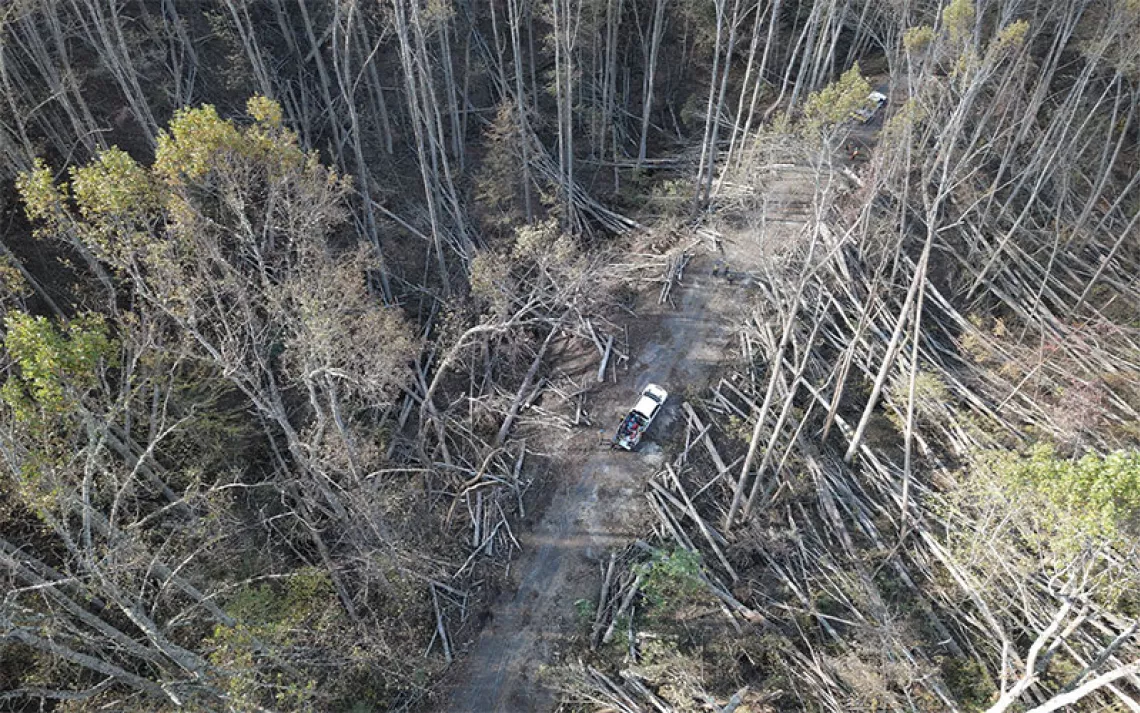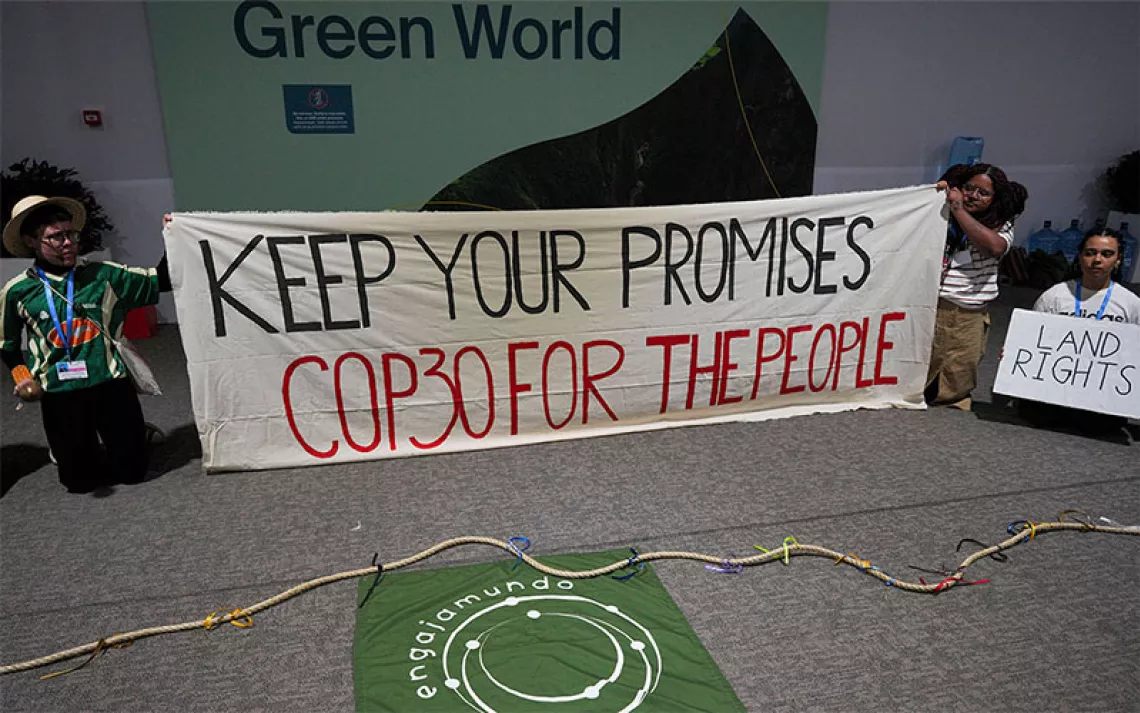Meet Rose Abramoff, Climate Scientist Turned Climate Activist
Abramoff is one of the few federal scientists fired for their climate activism
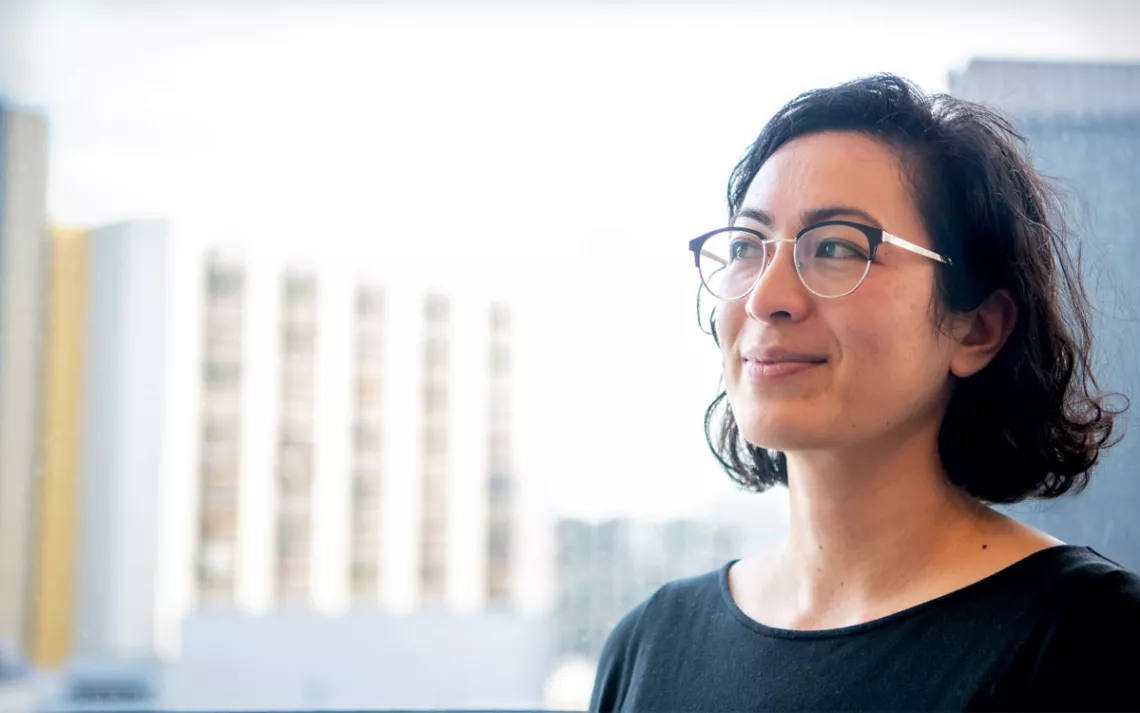
After engaging in nonviolent protests against fossil fuels, scientist Rose Abramoff was fired from her job at a federal laboratory. | Photo by Nikki Kahn
What a difference a year makes.
On the second day of the 2023 American Geophysical Union (AGU) conference last December, over 200 attendees packed a room at San Francisco's Moscone Center for a discussion about the scientific organization's relationship with the fossil fuel industry. Just 12 months earlier, two of the five panelists—climate scientists Rose Abramoff and Peter Kalmus—had been expelled from the same conference in Chicago after they interrupted a plenary lunch session by clambering onstage and unfurling a banner that read "Out of the Lab & Into the Streets." The scientists' research abstracts were withdrawn from the conference proceedings.
Weeks after she was booted out of the 2022 AGU conference, Abramoff was fired from her job at Oakridge National Laboratory. Lab officials determined that her protest at the AGU had violated its code of ethics—making her one of a handful of federal scientists to lose their position because of climate change activism. She swiftly published an op-ed in The New York Times ("I'm a Scientist Who Spoke Up About Climate Change. My Employer Fired Me.") expressing no regrets about her climate activism, which had included chaining herself to a White House fence. "I'm all for decorum," she wrote, "but not when it will cost us the earth."
At the AGU's 2023 gathering in San Francisco, the very institution she had once protested (with 55,000 members, the AGU is arguably the most influential earth science organization in the world) had agreed to host the town hall and open itself up to criticism of its past links to ExxonMobil.
With a warm smile and glasses, Abramoff doesn't look like a troublemaker. Even though she had helped coordinate the packed town hall, she kept her own comments brief. When moderator Caitlin Hicks Pries, a professor at Dartmouth and a longtime friend of Abramoff's, asked how much involvement the AGU should have with the fossil fuel industry, Abramoff responded, simply, "None."
In early 2023, Hicks Pries had helped circulate a letter objecting to the scientists' expulsion from the AGU conference in Chicago. Over 1,200 AGU members signed on, and Abramoff and Kalmus were invited to defend their actions before the organization's ethics committee. Soon after, their research was reinstated and they were encouraged to submit research and programming for the 2023 conference. "One thing I really admire about Rose is her ability to work toward consensus," Hicks Pries said. "She's very community minded."
Abramoff, 36, came to climate change activism gradually. In college, she was the odd student who actually liked organic chemistry. She especially enjoyed assembling colorful, marble-size atoms into 3D molecules during tests. "Literally nobody did that except for me, and I couldn't understand why, because I found it super helpful and awesome," Abramoff said.
She knew that climate change was a global problem, but she maintained a faith that governments would address it. She dedicated herself to climate-related research. "I had the sense that the most effective thing I could do with my life is become a scientist and discover truths and communicate them to policymakers who would listen carefully to me and take appropriate action," she explained.
When she realized that this was "absolutely not going to happen," Abramoff turned to nonviolent direct action as a lever for change. She joined the group Scientist Rebellion. Once, she chained herself to the fence of a private jet terminal in North Carolina; another time, she locked herself to pipeline equipment in West Virginia.
"I think the stuff that Rose is doing is normalizing for this younger generation that you can be a scientist and an activist too," said Hicks Pries, who had a cubicle next to Abramoff's when they were postdocs at Lawrence Berkeley National Laboratory. "You don't have to reject the values of scientific inquiry to be an activist. And you don't have to bury your feelings about climate change to be a scientist."
The day after the AGU town hall in San Francisco, Abramoff and Hicks Pries surveyed an alcove on the second floor of the conference center, where they planned to host a "climate grief circle." A similar event had been attempted at the conference the year before, but AGU officials, with help from the Chicago police, shut it down. This year's event was sanctioned, but the AGU hadn't dedicated a room for it.
Abramoff said, "Maybe it'd be spicier if we held it right here in the hallway." Hicks Pries nodded: Attendees would have to confront the circle on their way to the restrooms. People trickled over, and Hicks Pries and Abramoff formed three circles. Abramoff, wearing a simple black dress, sat on the carpet, legs tucked to one side.
A few individuals began to share. An early-career academic talked about the difficulty of instilling hope in her students when she so often feels none. A scientist turned novelist despaired at how long it's taking for people to wake up to the climate crisis.
Abramoff described the unexpected ways her own grief manifests. "I compartmentalize so hard," she said. "It usually comes out when I'm doing a five-minute interview and start sobbing."
As participants began to disperse, Abramoff passed out postcards with ways to stay connected. "If you want to continue planning the revolution, join our Slack channel!" she called out.
Later, Abramoff reflected on what it takes to effect social change. "You'll only believe in something as much as you're willing to take a risk for it," she said. She recalled how, as a high school student, she had taken part in a walkout to protest the US invasion of Iraq. There was a test that day, and she and some classmates begged their teacher to postpone it.
"I remember him saying, if we really cared about this issue, we should be willing to make the sacrifice of getting a zero on that history test," Abramoff said. "I wasn't ready then. But I'm ready now."
 The Magazine of The Sierra Club
The Magazine of The Sierra Club
